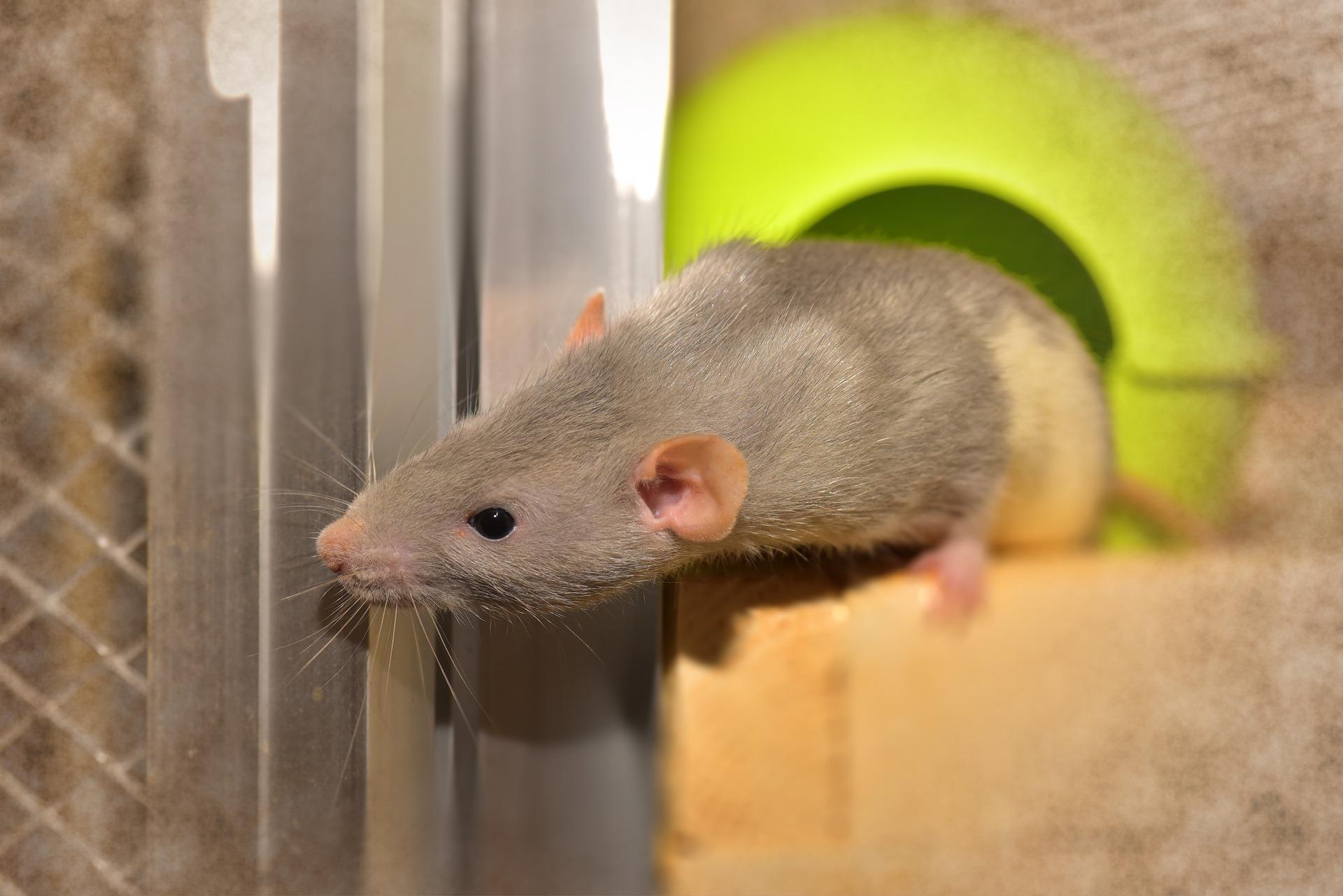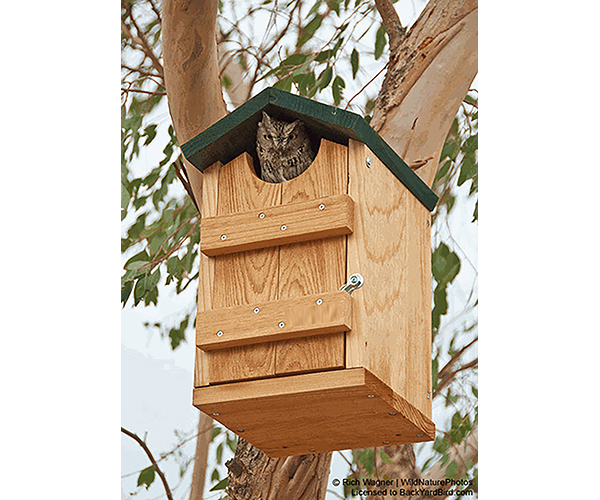As part of our ecosystem, rodents have a key role as seed spreaders, soil aerators, and part of the food chain for larger animals. If you’re an animal lover (as most of Chirp readers are), you likely appreciate the rodent’s role in nature, but you still may not want them as houseguests. What are your options? In this blog post, we’ll discuss the risks and consequences of using rodenticides (rat poison), how to store and use them properly if we are going to use them, and what poison-free alternatives are available.
How Rodent Pesticides Affect Our Families and Pets
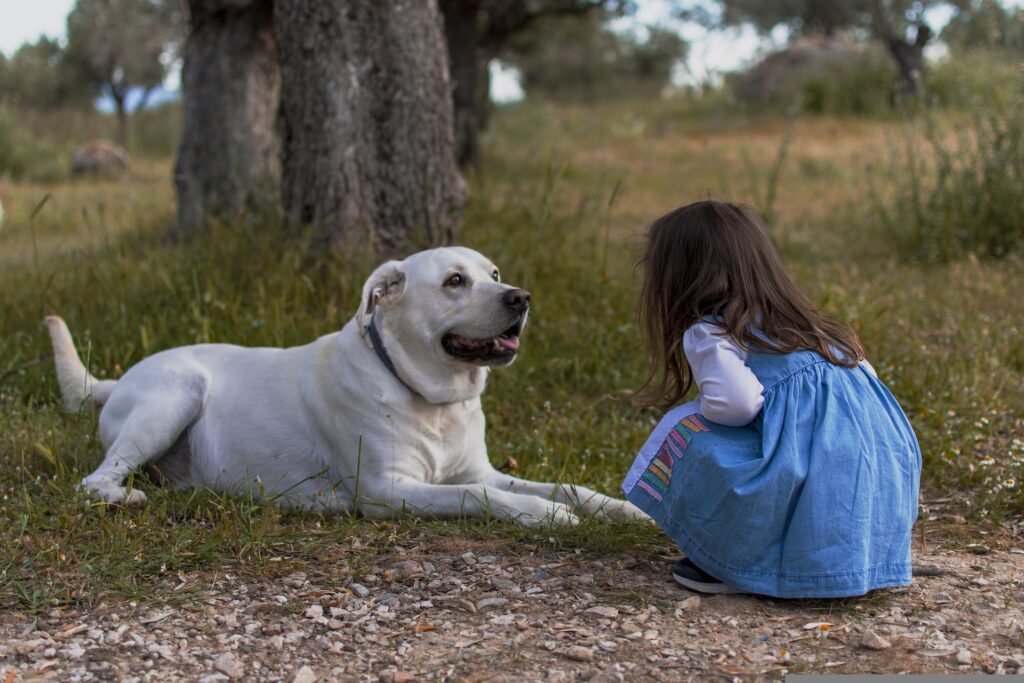
The truth is, we are all vulnerable to the effects of rat poison, but our children and pets are especially at risk. As our children are developing, they’re particularly sensitive to pesticides, which can hinder their immune response, and cause respiratory problems, nervous system conditions, and other adverse reactions. And since kids and pets are curious and like to explore through taste and touch, placing rat poison in their vicinity can be a recipe for disaster.
Studies on the effect of rat poison on children and pets:
- Rat Poisons Endanger 10,000 Children Every Year in the U.S.
- The Dangers of Rat Poison to Dogs and Cats
If your child has ingested rat poison, call Poison Control immediately at 1-800-222-1222
If your pet has ingested rat poison, call your vet immediately.
How Rodent Pesticides Affect Our Local Wildlife
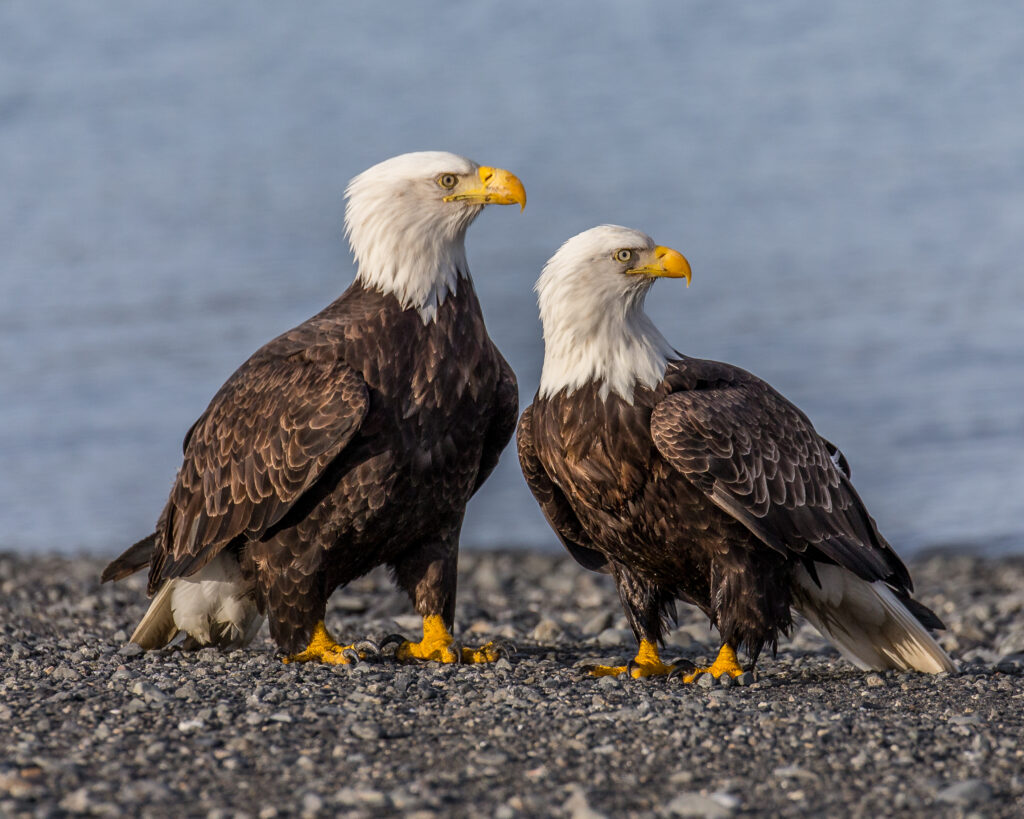
Unfortunately, rat poison doesn’t just kill rodents—it can harm, sometimes fatally, unintended victims. That’s because when a rodent eats rat poison, it doesn’t just die on the spot. It travels around for days, often becoming prey to bobcats, mountain lions, raptors, raccoons, foxes, snakes, and other wildlife. Common over-the-counter rodent pesticides contain chemicals that harm and often kill these predators once they ingest the poisoned prey. The ones they don’t kill outright often die from secondary conditions like mange, liver problems, and uncontrolled bleeding.
Studies on the effect of rat poison on wildlife:
If You’re Going to Use Pesticides, Take Precautions
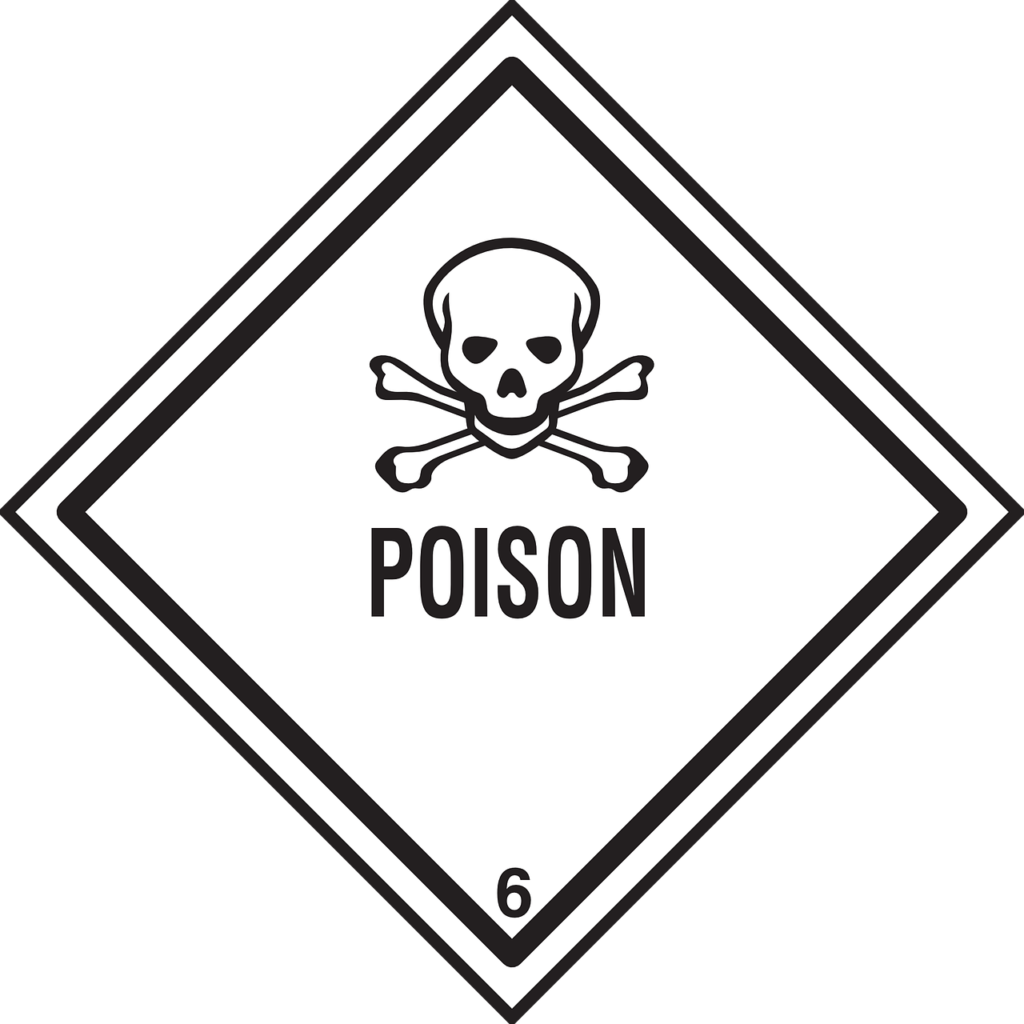
If you do opt to use rodenticide, it’s important to do so safely, reducing risk to your family and pets.* Here are some best practices to follow:
- Store pesticides out of reach of children and pets (i.e., in a shed, top shelf in garage, etc.)
- Keep pesticides in tightly sealed containers to prevent leakage.
- During treatment, place rat poison in areas that are inaccessible to children and pets (i.e., in high cabinets or cabinets with child locks)
- Store pesticides away from food, including pet food.
- Immediately remove and safely dispose of dead rodents on your property.
*Though these best practices lessen the risk of pesticides harming children and pets, they don’t remove the risk completely.
Poison-Free Pest Control Alternatives
Clean and Maintain Your Yard
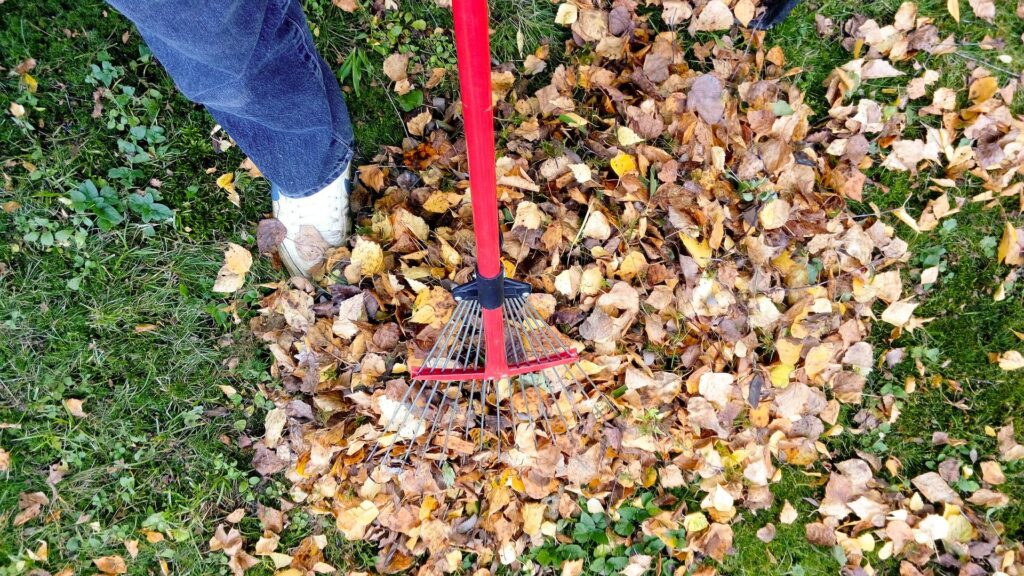
The best way to get rid of rodents? Don’t attract them in the first place! Deter them by keeping your outdoor area clean and maintained. This includes:
- Sealing any cracks and crevices on your home’s exterior
- Keeping outdoor trash cans closed and/or locked
- Securely covering outdoor compost bins
- Cleaning barbeque grills of food debris
- Removing pet food and feces
- Picking up fallen fruit and nuts
- Pruning dense vegetation and removing plant debris (natural shelters for rodents)
- Cleaning under your bird feeders regularly, and/or filling them with no-mess bird seed
- Storing your bird seed properly
Mount an Owl Box
Let nature take its course—and work for you! As natural predators of rodents, owls are a great pest deterrent to have on your property. To attract them, mount an owl box on a tree or post in your garden or yard at least ten feet off the ground. Owls are so effective at controlling the rodent population that many farmers use them to protect their crops from pests. For instance, a Barn Owl will typically eat up to 4 rodents per day. That means a family of owls can eat a dozen or more rats in just one night!
Plant a Pest-Deterring Garden
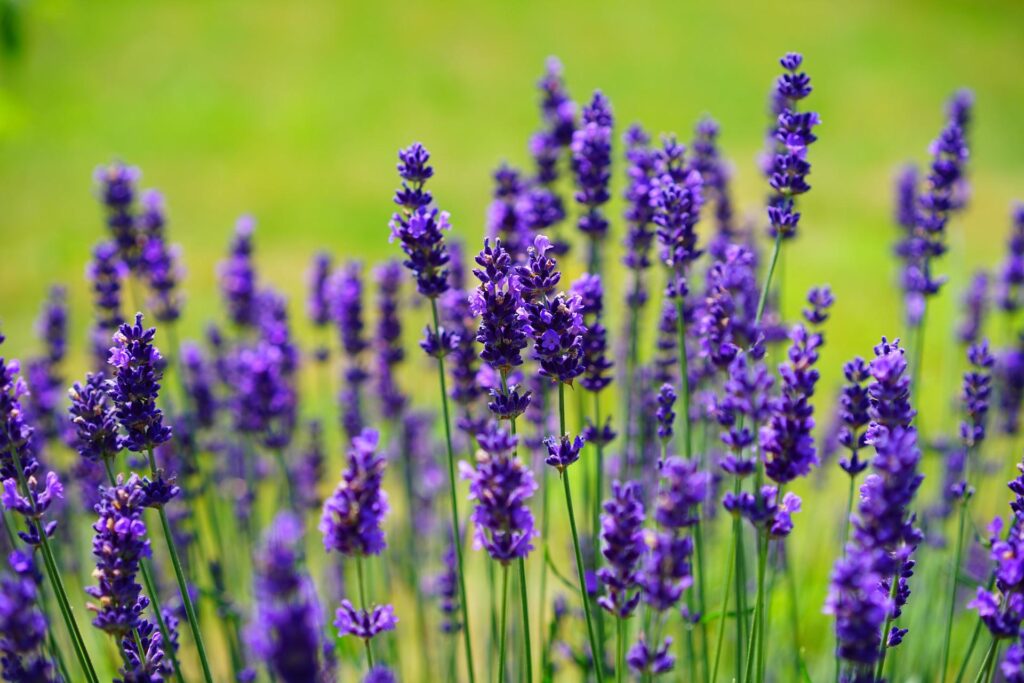
While some plants attract rodents, others can actually repel them. The good news is that you can enjoy a lovely, fragrant garden and less rodents—all at the same time. Plants that deter rodents include:
- Balsam fir
- Black pepper
- Clove
- Cinnamon
- Daffodil
- Garlic
- Lavender
- Marigold
- Mint
- Onions
- Rosemary
- Tomato
Use Non-Chemical Solutions
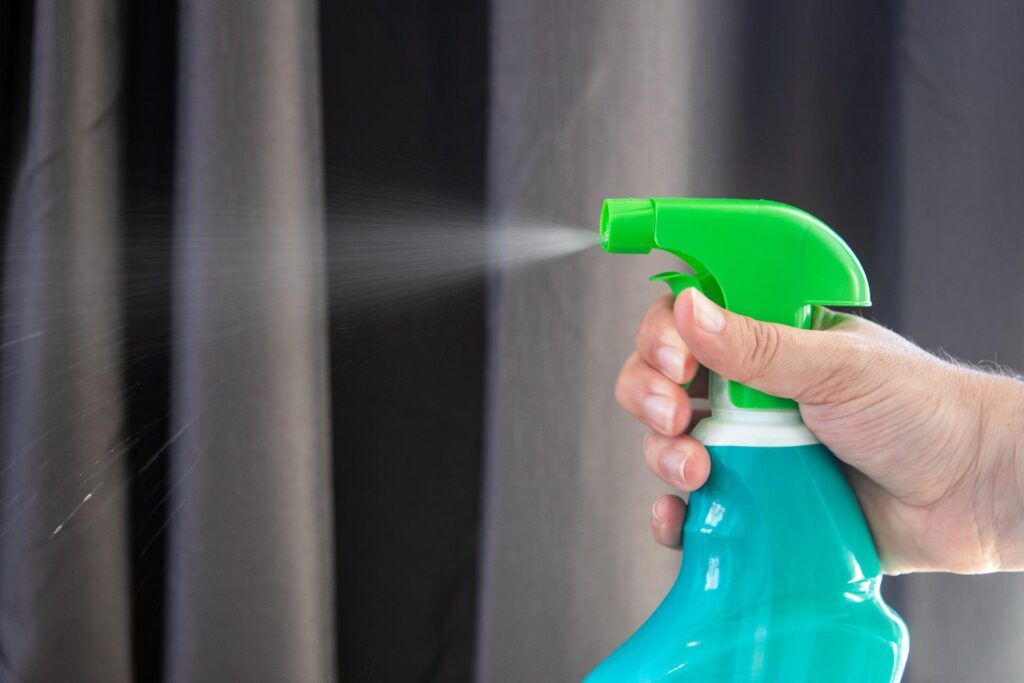
When you have a developed, or developing, rodent problem, it may take more effort to get rid of them. Many people find non-chemical pest solutions to be just as effective as the poison varieties.
Diatomaceous earth, or DE, is a well-known rodent deterrent. Make sure to get the food-grade kind, as it’s safe for humans and animals. Like most of these chemical-free pest solutions, diatomaceous earth won’t kill rodents, but it will deter them from sticking around. Use a duster to apply a thin layer in places where you’ve seen rodents, or where they commonly hide, like cupboards and attics.
Essential oils* like peppermint, lemon, eucalyptus, and citronella are natural rodent repellents. Mix 2-3 teaspoons of oil with a cup of water and use a spray bottle to apply it to places where rodents congregate.
Soap—particularly the pungent variety—has also been known to deter rodents. Simply cut your soap into two or more small cubes and place it in areas where you’ve seen rodents or their droppings.
Traps, like snap traps and live traps, are considered humane since they either kill the rodent instantly or trap it live for removal. Glue traps, however, are not recommended, as they often trap songbirds, raptors, snakes, and other animals—and can starve to death in the process.
*Some essential oils may be harmful to children and pets upon contact or ingestion.
Hire a Poison-free Pest Control Company
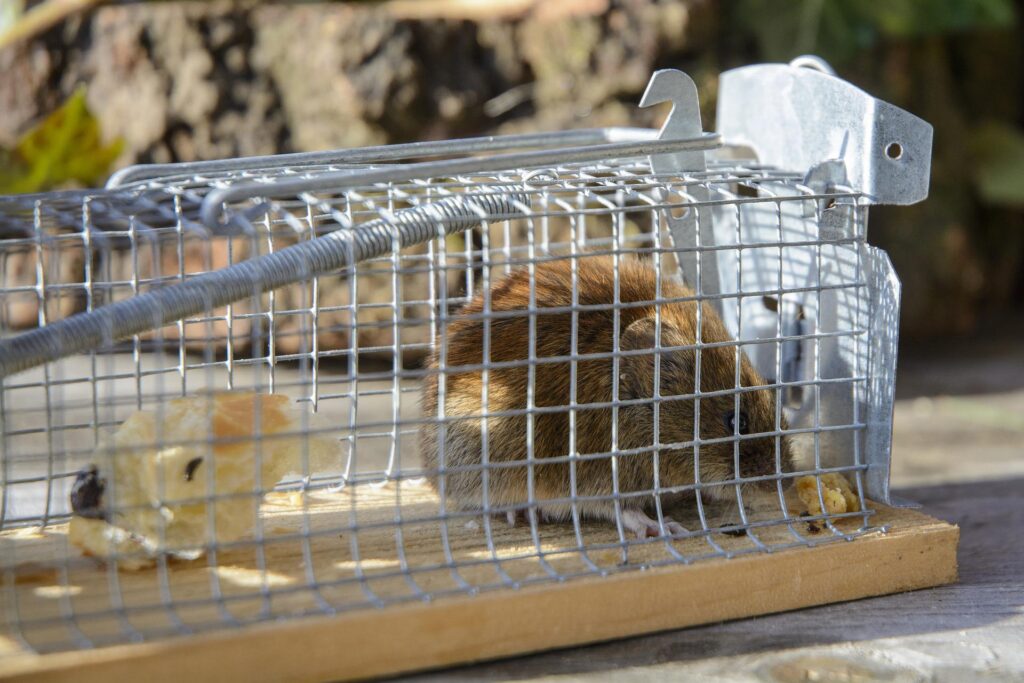
There comes a time when you need professional help. If you’re concerned about chemicals, there are many pest control companies that use non-toxic ingredients. Look for companies that use organic solutions and live traps, and those that:
- Help you to identify and prevent rodent access areas
- Use organic repellents safe for humans and pets
- Apply wire screening and sealants
- Check live traps frequently and use trap-and-release methods
- Avoid using glue traps, carbon dioxide, carbon monoxide, and other chemicals
Help Chirp Keep Local Wildlife Safe
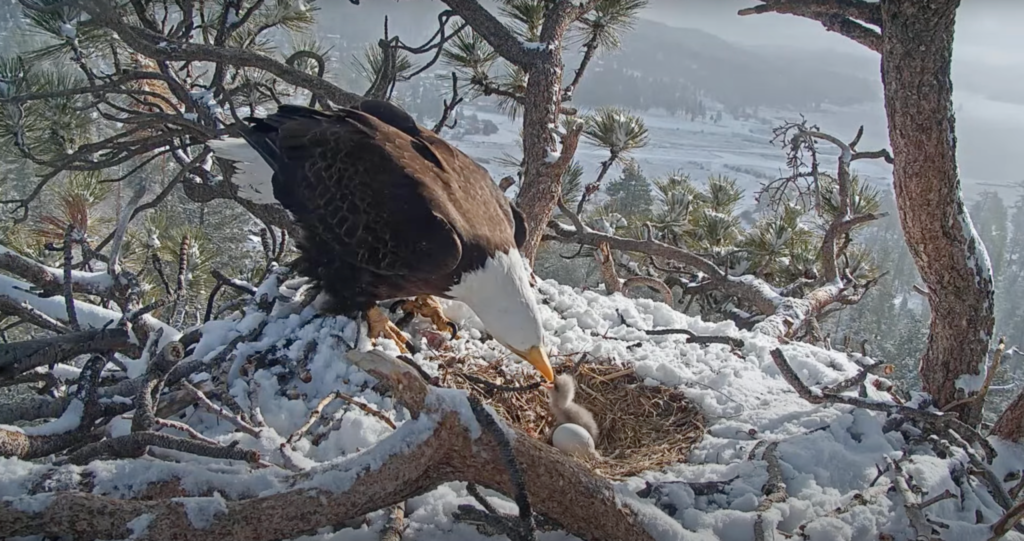
You help keep Big Bear Valley birds and wildlife safe when you:
- Plant native plants
- Plant a garden that supports pollinators
- Turn your yard into a certified wildlife habitat
- Support the declining bird population
- Prevent window strikes
- Keep cats indoors
- Help birds during nesting season
- Feed your local birds
- Clean your bird feeders frequently
Want to chat with other nature lovers, and learn more about birds and animals? Join us on one of Chirp’s monthly Bird Walks or Bird Talks!

